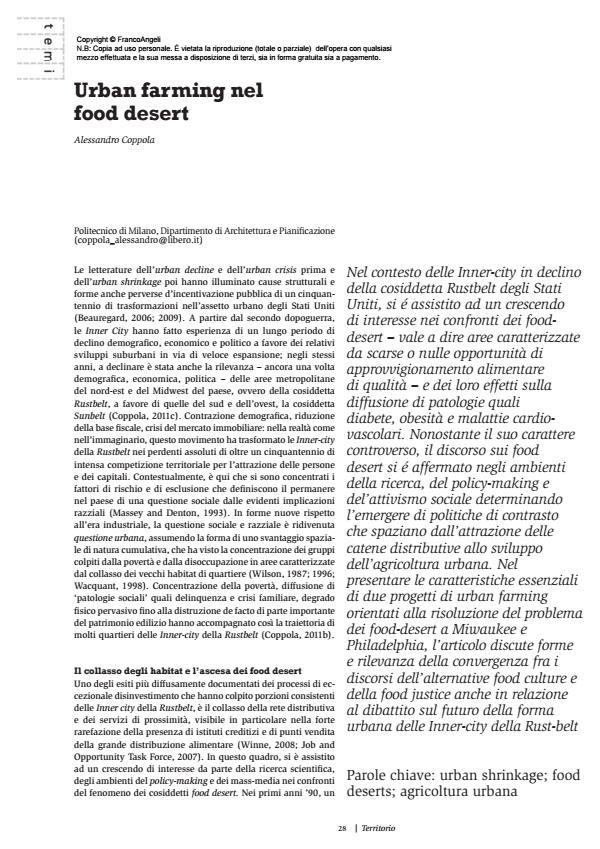Urban farming nel food desert
Titolo Rivista TERRITORIO
Autori/Curatori
Anno di pubblicazione 2012 Fascicolo 2012/60
Lingua Italiano Numero pagine 5 P. 28-32 Dimensione file 136 KB
DOI 10.3280/TR2012-060005
Il DOI è il codice a barre della proprietà intellettuale: per saperne di più
clicca qui
Qui sotto puoi vedere in anteprima la prima pagina di questo articolo.
Se questo articolo ti interessa, lo puoi acquistare (e scaricare in formato pdf) seguendo le facili indicazioni per acquistare il download credit. Acquista Download Credits per scaricare questo Articolo in formato PDF

FrancoAngeli è membro della Publishers International Linking Association, Inc (PILA), associazione indipendente e non profit per facilitare (attraverso i servizi tecnologici implementati da CrossRef.org) l’accesso degli studiosi ai contenuti digitali nelle pubblicazioni professionali e scientifiche.
In the context of the inner cities in decline in the United States rustbelt, we have seen growing interest in food deserts (i.e. those areas with few or no opportunities for quality food supplies) and their effects on the diffusion of diseases such as diabetes, obesity and cardio-vascular disorders. Despite its controversial character, the discourse on food deserts has become popular in the fi elds of research, policy-making and social activism, thereby causing opposing policies to emerge which range from the attraction of distribution chains to the development of urban agriculture. By presenting the basic features of two urban farming projects oriented towards solving the problem of food deserts in Milwaukee and Philadelphia, the paper discusses forms and the relevance of the convergences between food culture and food justice and it also relates these to the debate on the future of urban forms in the inner cities of the rustbelt.
Parole chiave:Urban shrinkage; food deserts; urban agriculture
, Urban farming nel food desert in "TERRITORIO" 60/2012, pp 28-32, DOI: 10.3280/TR2012-060005